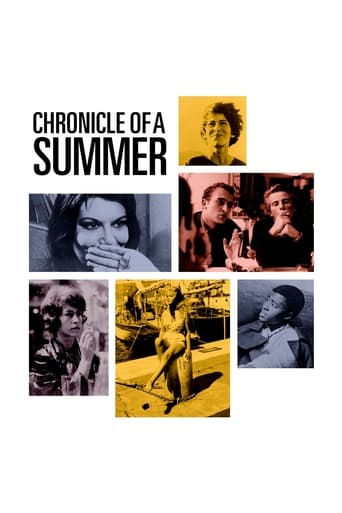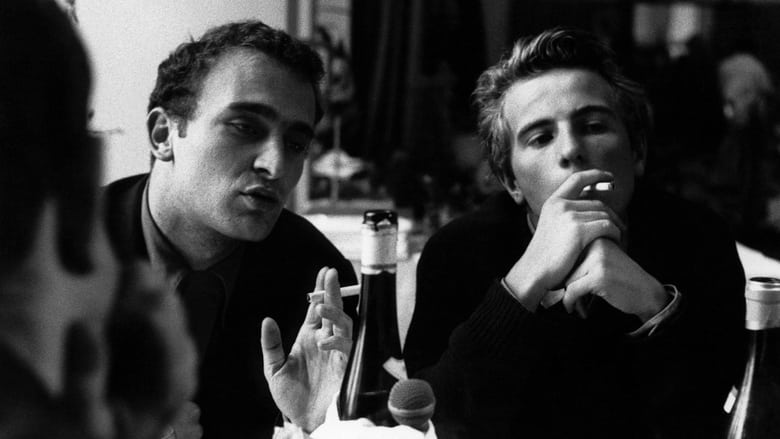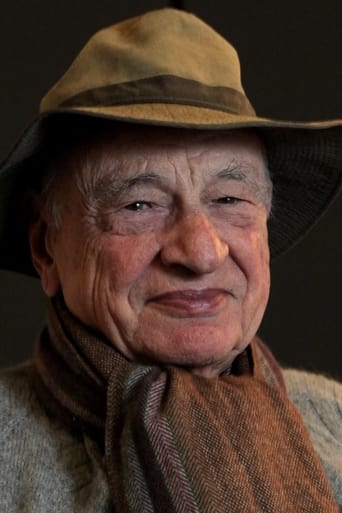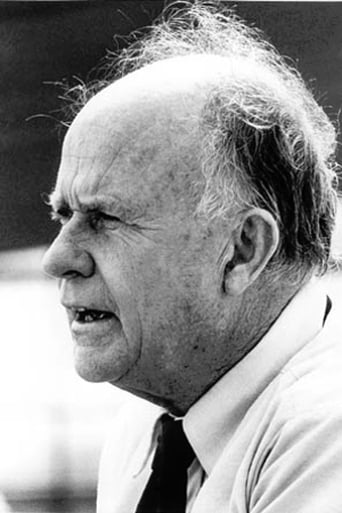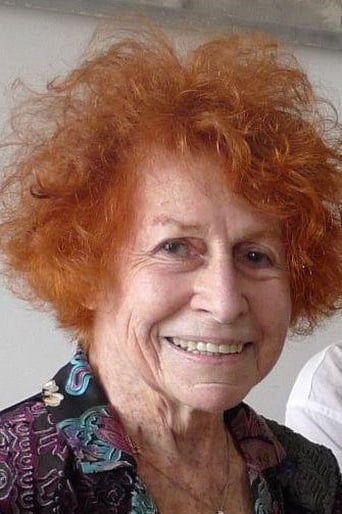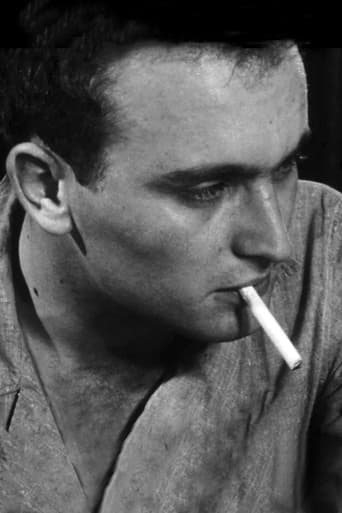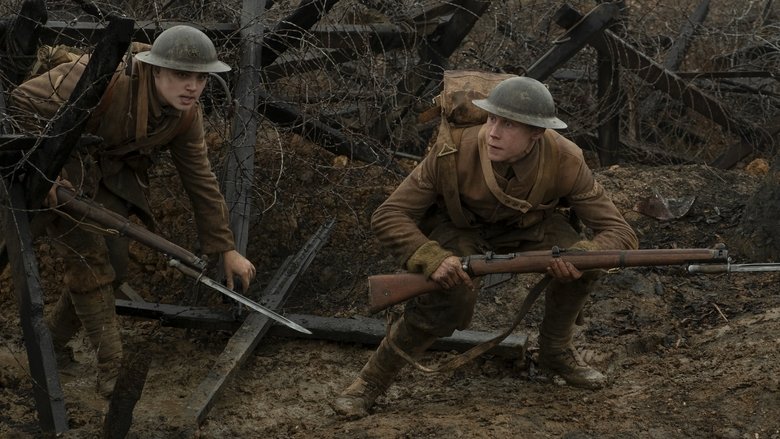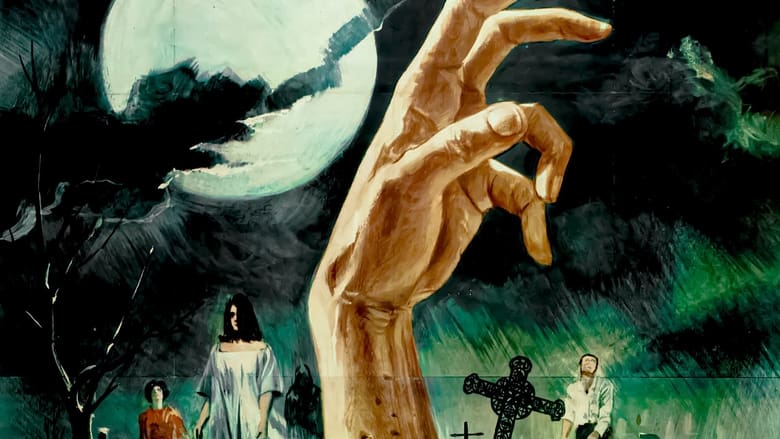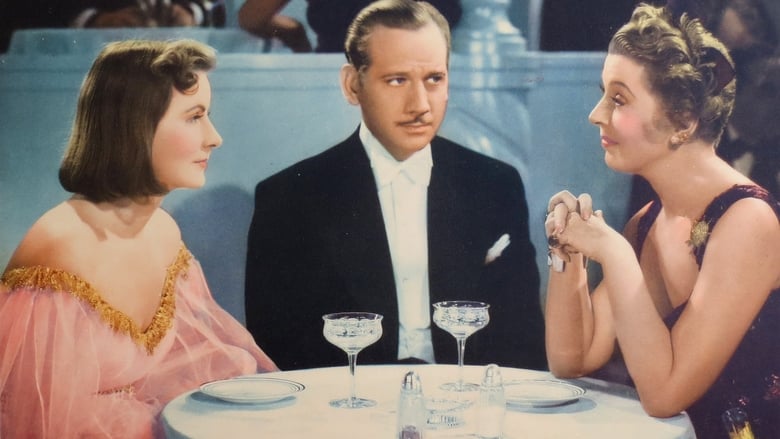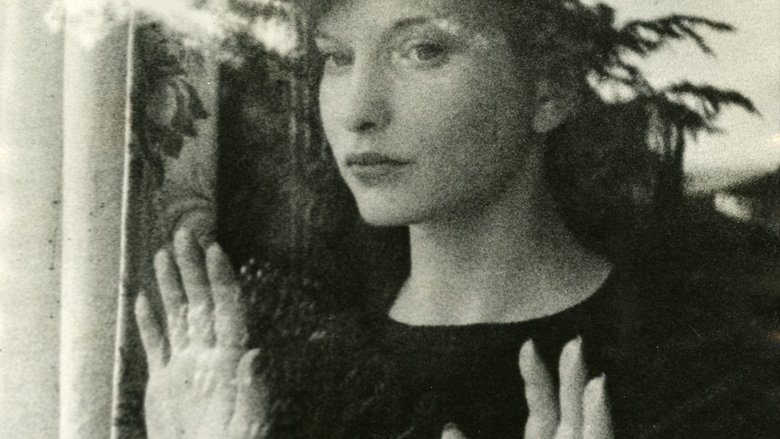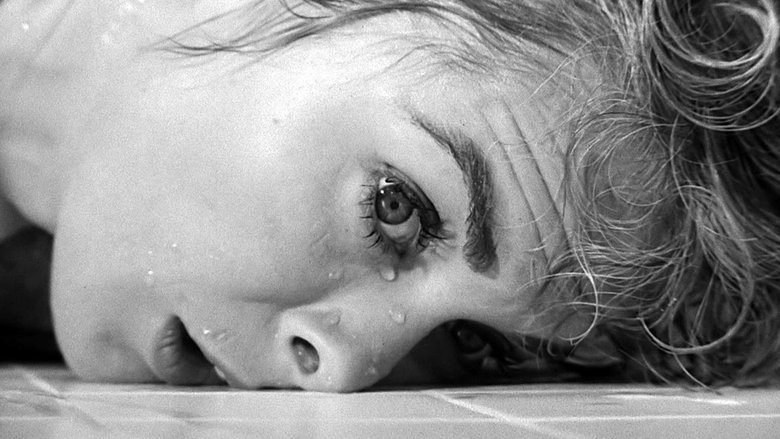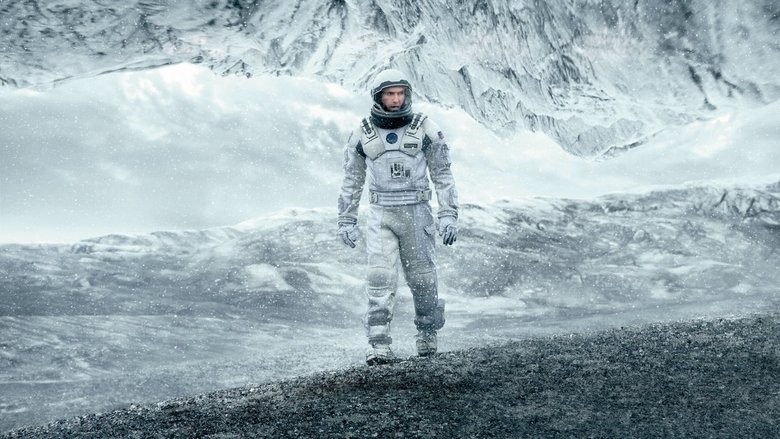Paris, summer 1960. Anthropologist and filmmaker Jean Rouch and sociologist and film critic Edgar Morin wander through the crowded streets asking passersby how they cope with life's misfortunes.


Similar titles
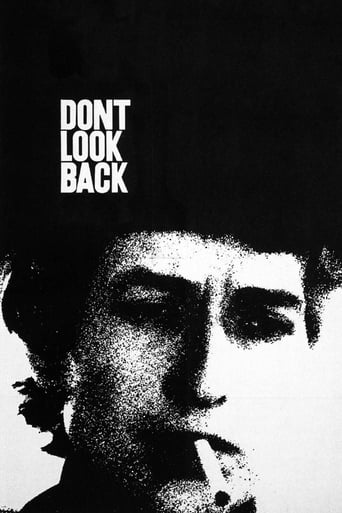
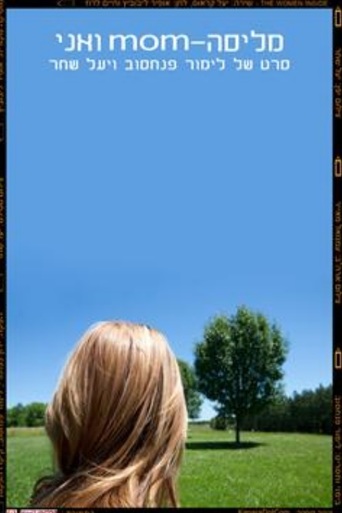

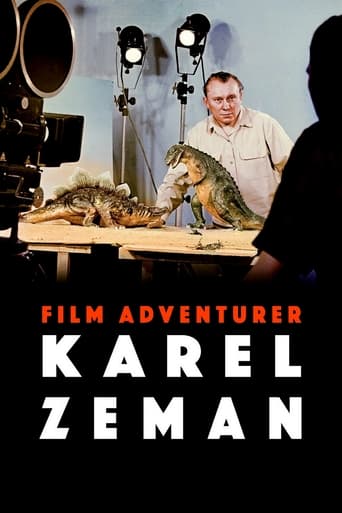
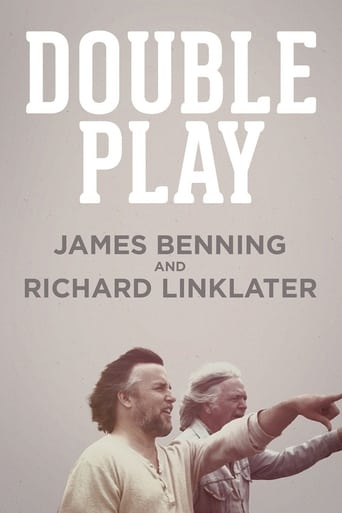
Reviews
Jean Rouch is remembered as an oddity in film history, an artist working in between of fact and fiction as well as the era of colonialism and post-colonialism. He is especially often crowned as the founder of ethnographic cinema, but "Chronicle of a Summer" (1961) made by Rouch and Edgar Morin is something a little different. It is the breakthrough film of cinéma vérite or "truth cinema" which had a huge impact on the following French New Wave, most of whose filmmakers admired Rouch.Already in his earliest documentaries, Rouch isolates himself from his own time by focusing on engagement and immersion instead of observation. Interaction between the observer and his object -- or rather between subjects -- becomes vital. As vital is embracing the presented subjects' personal and collective world views, which form a fascinating entirety in Rouch's "I, a Black Man" (1958). In a word, the other and the self are of the same reality to Rouch. Although a representative of so-called truth cinema, Rouch and Morin's film does not concern any epistemic and scientific truth, but rather the truth of the appearance of the intersubjective reality. The camera takes part in action, ceases to exist, but at the same is inseparably present. A fabric of real emotions, thoughts, lies and acts is born which can be taken as a truth of one kind. On the one hand, Rouch and Morin attempt to revolutionize the cinema or at least to turn its lens to itself, but on the other, their sociological mission is to find out how does the modern man live. Hence they ask "Are you happy?" from random people in the streets. Rouch's "The Human Pyramid" (1961) might be more well organized, though utterly poetic, than "Chronicle of a Summer", but the latter is more essay-like which also associates it with the new wave. The remarks of the meta-level are not as detached from the rest of the film as in "The Human Pyramid", but still fact and fiction merge in an essential fashion. However, Rouch didn't only affect new wave filmmakers for his cinematic methods but also for his image of the world and man. There is indeed great human beauty in the film. During the interviews and other scenes, the camera becomes a penetrating mirror to whom one can reveal all of one's secrets. Perhaps this also happens to the viewer in a lesser extent. On one level, Rouch and Morin reveal the need to talk and share in an individualistic society. On the other, they tell something enduring about man, life and cinema.
This is a magnificent, and exquisitely sensitive and original, film which I never saw until now. It has been released on DVD with an extremely informative and lengthy booklet by Sam di Iorio, and with many DVD extras (such as previously unseen footage cut from the original officially released version of this film) and important and informative interviews. It is necessary to see it all and read the booklet in order to take in the enormous importance of this project, and its effect on worldwide film-making which followed afterwards. The film was jointly directed by ethnographic film-maker Jean Rouch and Edgar Morin, the latter being a sociologist and intellectual. I knew Jean Rouch during the latter 1970s. He was employed by the Ethnographic Film Unit of the Musée de l'Homme in Paris. I was introduced to him by an anthropologist with whom he worked closely, Germaine Dieterlen. The fact that I was friendly with his anthropologist colleagues (including also Solange de Ganay and the family of Dominique Zahan) and came to him in that way rather than through the media meant that he was particularly warm and friendly towards me and was prepared to give me every cooperation. He was a truly marvellous man, and if I had lived in Paris I would inevitably have been drawn into his fascinating circle of friends. I was at the time working under a contract with the BBC on a major TV documentary, not only as a researcher, but effectively as a co-producer for much of it, though uncredited as such. We needed ethnographic footage from Jean of a West African tribe. But Jean had eccentric personal habits and was exasperatingly elusive. This was long before cellphones existed. He would leave his flat every morning (except for the times when he stayed out all night) between 7 and 8 AM and could not then be contacted by any telephone. That is of course 6 to 7 AM British time. No BBC employee is awake at such an hour, much less in the office. So the BBC gave me the additional assignment of dealing with Jean Rouch entirely on my own, up until financial negotiations were reached. I would set my alarm clock for 5 AM and try and become alert enough to phone him before 6. In Paris, Jean and I sat through about 36 hours of ethnographic footage together and had long talks. During this time I conceived an enormous respect and admiration for him, but I never had any idea that he had made this film, and he never mentioned it. I now know that he had been greatly influenced by WE ARE THE LAMBETH BOYS (1958), which I had seen and admired long before, and which was an early documentary by the British director Karel Reisz, under whom I had apprenticed for several months in the 1960s. (I don't believe Karel and Jean ever met, which is a pity.) But as I was unaware of Rouch's non-ethnographic film-making, we never discussed Karel's work, which would have been so interesting for both of us. Jean was infatuated with his Africans, and only wanted to talk about them, and we bonded because of sharing that interest. This film shot in the summer of 1960 was a 'revolution in the cinema' in the true sense. The film set out to ask people 'are you happy?' and got some dusty answers. Although a few strangers were approached in the street on a vox pop basis, most of the people interviewed were individuals known to the directors. Some of the interviews are overwhelmingly emotional, more powerful and devastating to watch than any dramatic acting. The two main examples of this are the scenes with the amazing Marceline Loridan, who years later married the documentary filmmaker Joris Ivens, and is still very much alive, as well as with 'Mary Lou' (really Marilu) Parolini. Towards the end of the film she is glowing with happiness because she has found a boyfriend whom she loves. He is Jacques Rivette, later a famous film director. Another famous person who appears in the film as a young man is the notorious ideologue and political provocateur Régis Debray, who became a friend and colleague of Che Guevara. So fascinating is this film and everything connected with it that a review can do it no justice at all. But what is most remarkable of all is the intensity of many of the film's sequences, perhaps because they are real rather than simulated, and come from people prepared to be more honest and revealing about themselves in front of a camera than possibly anyone had ever been before. It is in this sense that this film goes beyond all previous horizons and treads a New Land, as unexplored by the cinema until then as the subconscious had been before Freud. The monologue spoken on the sound track by Marceline, as she wanders through the now-vanished Les Halles, about her memories of Auschwitz, where she had been taken as a Jewish girl of 16, and of her last meeting there with her father, who had told her she would get out of there but he would not, are so distressing that they would bring tears to the eyes of stones, if they could see and hear. But the most torrential outpouring of emotions comes from Marilu Parolini, and her self-revelations must rank amongst the most harrowing and naked in the entire history of film. It is impossible to overestimate the importance of this shattering documentary, not only for the history of cinema, but as a breakthrough in the moral, social, and psychological spheres. It was the first film of the cinema verité movement, which it founded. And since then, it is doubtful that any other film of this kind has yet equalled it. Let us hope therefore that this DVD release may stimulate more projects like it.
this was fascinating and brilliant doc in my opinion ahead of its time compared to this generation of reality TV and social media. the film focus and the parisian working class in serious of interviews and a brief look at there daily lives and conducting interviews about happiness, the struggles and goals and dreams. i am 44 and i was fascinated watching this film and how life was, and how it has changed in over 53 years. The fascinating film is for an acquired taste for an audience that can appreciate this type of film. This Film won the international critics prize at the 1960 Cannes film festival at the time of its release it was not popular with most critics or audience.
It has a somewhat simple beginning: Edgar Morin and Jean Rouch chose some characters and follow them around, organizing round-table discussions with them and trying to get a handle of their lives and how they are affected by living in 1960s Paris. The movie itself, however, becomes more complicated as it becomes a more experimental approach to the ever-present documentary conundrum: Truth. As Morin and Rouch play around with different ideas and approaches to making a Truthful picture of "a summer", they have to deal with problems of whether or not they're directing, how to truly show a person's character unchanged by a camera's presence, and all of those issues dealing with the burden of representation and what the subjects desire out of the process of being subjected to the camera's eye.However, there is no truth in media--there is only representation. Is this a problem? Morin and Rouch's documentary is itself a representation of discovering representation, which makes it infinitely self-reflexive and self-aware. Thus, it becomes problematic to truly decide whether or not the documentary is "successful" or not, especially since Morin and Rouch include an denouement where they discuss their impressions themselves. Does this documentary even need the subjects it represents in order to get it's own themes across, or do in fact the subjects deserve a more straight-forward exposition? These questions, not the answers, are the point of this documentary.--PolarisDiB
